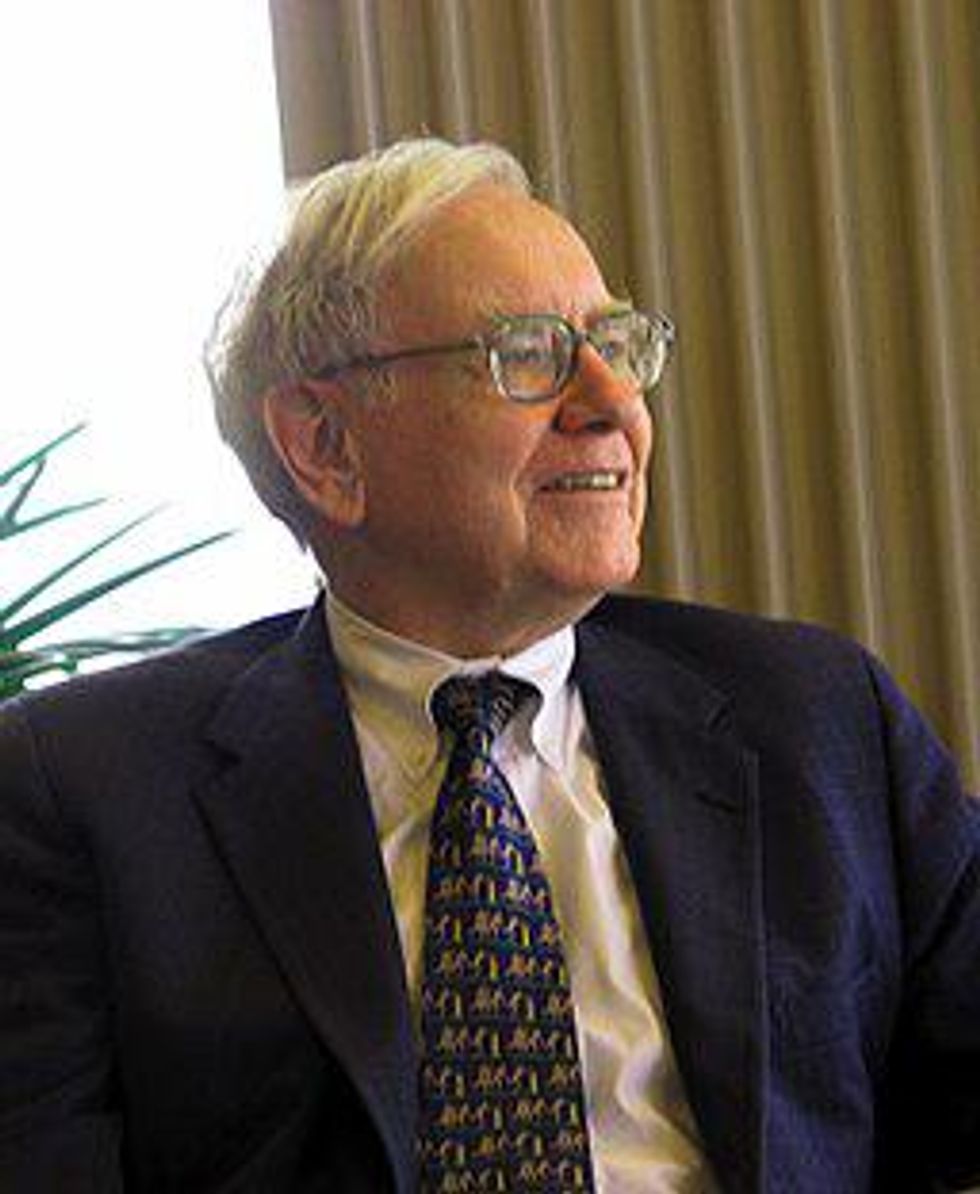Warren Buffett to Help Fund International Uranium Fuel Bank
Well-known American investor and philanthropist Warren Buffett turned heads on Thursday. The news? He’ll be helping to fund an international low-enriched uranium fuel bank set to open in Kazakhstan in two years.
Warren Buffett. Image courtesy of Wikimedia Commons.
Well-known American investor and philanthropist Warren Buffett turned heads on Thursday when it was confirmed that he’ll be helping to fund an international low-enriched uranium (LEU) fuel bank set to open in Kazakhstan in two years.
According to Reuters, Buffett, together with the US-based Nuclear Threat Initiative (NTI), will donate $50 million to the project, with another $100 million coming from the European Union, Kazakhstan, Kuwait, Norway, the United Arab Emirates and the US.
Buffett is an advisor to the NTI, and their joint $50-million commitment was first announced back in 2006, according to a NTI press release put out Thursday. However, it was contingent on the International Atomic Energy Agency (IAEA) receiving a further $100 million in two-to-one matching funds, a condition that wasn’t met until three years later.
It then took until 2010 for the IAEA to sign off the bank’s establishment, and until 2011 for Kazakhstan to express an interest in hosting the fuel bank. In the four years since then, the IAEA has been working out hosting details with Kazakhstan, finally granting operating approval this week. This week also saw the IAEA approve an agreement with Russia for the transport of LEU to and from the fuel bank.
“The conclusion of the two agreements, with today’s approval by the Board of Governors, represents a significant milestone for this important project, enabling us to proceed to full-scale implementation,” said Yukiya Amano, director general at the IAEA.
Why a fuel bank?
Reuters states that the fuel bank will house LEU that can be used by IAEA member countries in the event of a disruption in the commercial market.
However, those in favor of the fuel bank also see it as a way to deter countries from “building enrichment facilities that might be misused to purify uranium to weapons-grade levels.” The issue is that LEU, or uranium that’s been enriched to a fissile purity of about 5 percent, can be further enriched to around 90 percent, and at that level becomes weapons-grade material — concerns have long been rife that Iran will do just that. The idea is that the fuel bank will stop IAEA member countries from developing their own enrichment capacity in the event of a disruption in LEU supply. In turn, that will decrease the risk of proliferation of nuclear material.
In terms of how much uranium the fuel bank will be able to hold, the IAEA states that it will have the capacity for 90 metric tons of LEU, “sufficient to run a 1,000 MWe light-water reactor.” Reuters notes that of the 438 operational reactors across the globe, about 350 are light-water reactors. A 1,000-MWe light-water reactor could power a large city for three years.
The bank will be located in Northeastern Kazakhstan at the Ulba Metallurgical Plant in Oskemen. Though it will be owned and controlled by the IAEA, it will be operated by Kazakhstan. The $150 million provided by Buffett and the other contributors will be enough to establish the fuel bank and run it for at least 10 years.
Investor takeaway
Commentary from those in the uranium space has been minimal thus far, but in a note to clients Thursday Rob Chang of Cantor Fitzgerald did give a brief statement. He stated, “[t]his is the type of news that gets media attention and the attention of retail investors — thereby adding credibility to the space and making nuclear power (and uranium) closer to a front page story.”
With the uranium price still languishing around $40 per pound U3O8, any positive attention is likely to be welcome news for those in the space. It will be interesting to see further reactions as news of the fuel bank spreads.
Securities Disclosure: I, Charlotte McLeod, hold no direct investment interest in any company mentioned in this article.






